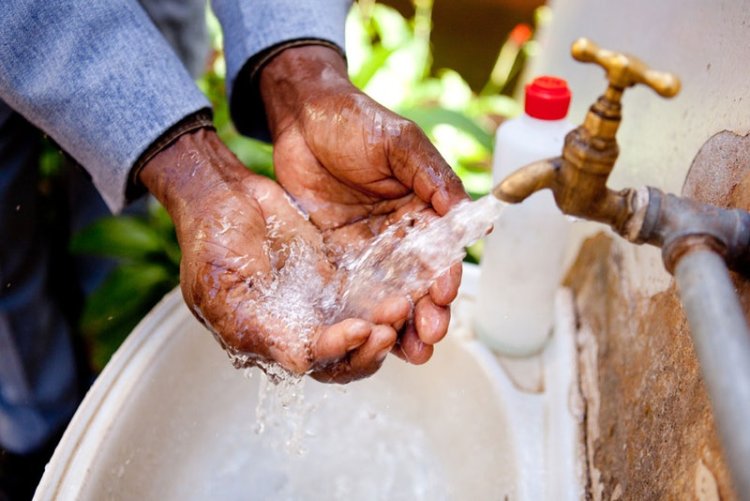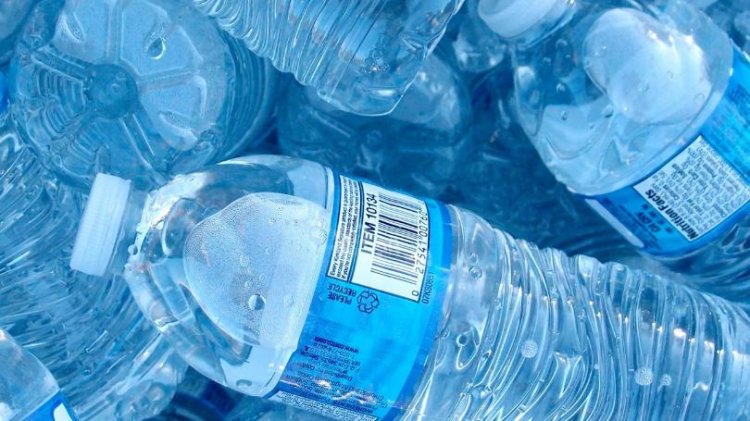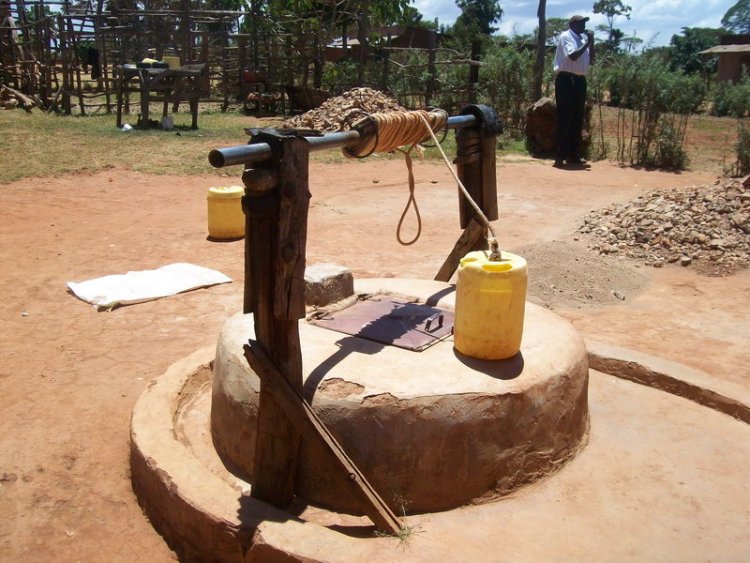When Water Can Cause Damage To Your Teeth
We all know that fizzy drinks, fruit juice and sugary foods can cause significant damage to your teeth, but little is known about the type of water that can damage your teeth

They say water is life, and as such, water plays a great role in your overall health as well as your oral health.
We are all constantly reminded to get our eight glasses a day, or actually quite a bit more according to Mayo Clinic. Water also plays a vital role every morning you get up and brush your teeth.
How exactly then, can the type of water affect your dental health? We all know that fizzy drinks, fruit juice and sugary foods can cause significant damage to your teeth, but little is known about the type of water that can damage your teeth and force you to spend plenty of money on getting them fixed.
Viral Tea takes a look at the different types of water and how they can affect your teeth:
Bottled Water
Bottled water is the popular upmarket choice for lots of people, with many of us noting the superior taste. However, some dentists may not recommend bottled water.

An image of bottled water. /KENYAN WALLSTREET
The first thing to remember is that bottled water is susceptible to bacteria once you break the seal, especially if it’s allowed to warm up to room temperature. You often drink tap water in one sitting whereas that bottled water in your bag isn’t doing much good for your dental hygiene.
Most bottled water also lacks fluoride, an essential part of dental health. If you drink mostly bottled water, you might want to consider adding a fluoride supplement to your diet. That way you can drink as much bottled water as you like and still keep your teeth happy.
Here are some tips to consider when drinking bottled water. Make sure to choose water with a Potential of Hydrogen (PH) [a measure of the acidity or alkalinity of a solution] level over 5 because the enamel in human teeth starts to erode at a PH level under 5.5. PH can range from 0 to 14.
Tap Water
It is arguably one of the easiest sources of water in terms of accessibility in Kenya, either located in residential homes or among water-filling points in informal settlements.
Most dentists recommend drinking standard tap water because patients can benefit from a number of minerals, including calcium, magnesium, and phosphorous. But the biggest dental benefit from tap water is fluoride.
Although fluoride itself can be a topic of debate these days, drinking fluoridated tap water has reduced cavity occurrence in adults and children by about 25% according to the Centers for Disease Control and Prevention (CDC). In addition, the American Dental Association (ADA) provides a comprehensive list of health organizations which endorse tap water fluoridation.
The lack of fluoride in bottled water however can be harmful to your teeth, thus it is important to drink the bottle of water within 30 minutes. Just like sucking on sugary hard candy, sipping water with a lower PH level will cause the enamel on your teeth to erode and the longer you take to drink the water, the more damage can be done.
It is important to note that fluoride exists naturally in water and many other sources. Fluoride doesn’t heal or reverse preexisting tooth decay, but it can help prevent new cavities from starting.
Sparkling Water
Any drink with carbonation, including sparkling water, has a higher acid level, and some reports have questioned whether sipping sparkling water will weaken your tooth enamel.
Sparkling water or carbonated water can be slightly more acidic than your average glass. That’s because the carbonation comes from carbon dioxide, which turns into carbonic acid in your mouth and it is what gives sparkling water its zesty, tangy flavour.
However, it appears that it’s not acidic enough to cause any real issues. In a study where donated teeth were allowed to sit in either tap water or sparkling water, no significant difference in erosion was observed.
It is worth noting that carbonated water which is flavored or sweetened in some way is no longer just plain water with bubbles and could potentially have a higher acidity that harms your teeth. That includes adding a simple squeeze of lemon or lime.
Having sparkling water with a meal may also help prevent any small risk of enamel erosion because the meal stimulates saliva flow.
Well Water
There has been an increase in the drilling of wells across Kenya to provide alternative sources of water to residents, sparing them from rationing that may occur courtesy of water supply companies like Nairobi Water.
Well water is generally more of a hard water, meaning that it carries higher mineral content. If your primary residence runs on well water, it would be beneficial to get the water tested every now and then.
Dentists’ main concern is understanding how much fluoride is in the water. If it is too little, it won’t prevent cavities, but too much of it can lead to discolouration of teeth.
By getting your water tested, you can also get an idea of the presence of other minerals, including calcium, magnesium, sodium, and phosphorus. Since tap water is regulated, the levels of these minerals are always known, whereas with well water it is a gamble unless recently tested.
Provided that you’ve got a good balance of all of these minerals in your well water, then this is a great (and cheap) source of water which promotes oral health and protects teeth.
Salt Water
As much as it is known that salt water is not great for drinking, the answer to whether we should use it for our oral care is 'maybe'.
Rinsing with salt water has a number of potential benefits. It can help protect teeth and fight off bad bacteria, but use too much salt, rinse with it too often, or take in too much sodium from your food – and you might dry your mouth out. That would have the opposite effect, promoting the growth of bacteria and possibly irritating mucous membranes inside your mouth.
Rinsing with salt water could be considered a medicinal effort, which is why it is great to try 24 hours after minor dental surgery, for mouth sores, on a sore throat, or even as a backup plan if no mouthwash or toothpaste is available. Despite the risk of overdoing the salt water rinse, it does seem to irritate mucous membranes less than some commercial mouthwash options.

Image of a shallow water well in Kenya. /SAMSAM WATER FOUNDATION
Colgate recommends adding half a teaspoon of salt to one cup of lukewarm water and rinsing no more than 4 times per day.
Hot and Cold Water
For the most part, it doesn’t matter much whether water is hot or cold, as long as it's plain. The main concern dentists have with water temperatures is to not burn your mouth or damage the bristles of a toothbrush with very hot water.
For sensitive patients, hot or cold water may result in discomfort. If this lasts for several hours after drinking, be sure to ask your dentist about it at your next visit.
The discomfort from hot or cold water could be a sign of receding gums or enamel erosion, in which case there are procedures, lifestyle adjustments, or special kinds of toothpaste that may help.
It’s also worth noting that once you take plain hot water and turn it into tea or coffee (especially if sweetened) – the temperature does matter. Naturally occurring chemicals and sugar can react in your mouth to cause enamel erosion problems, at which point the hotter the liquid, the faster the reactions, the worse its effects.

 admin
admin 




